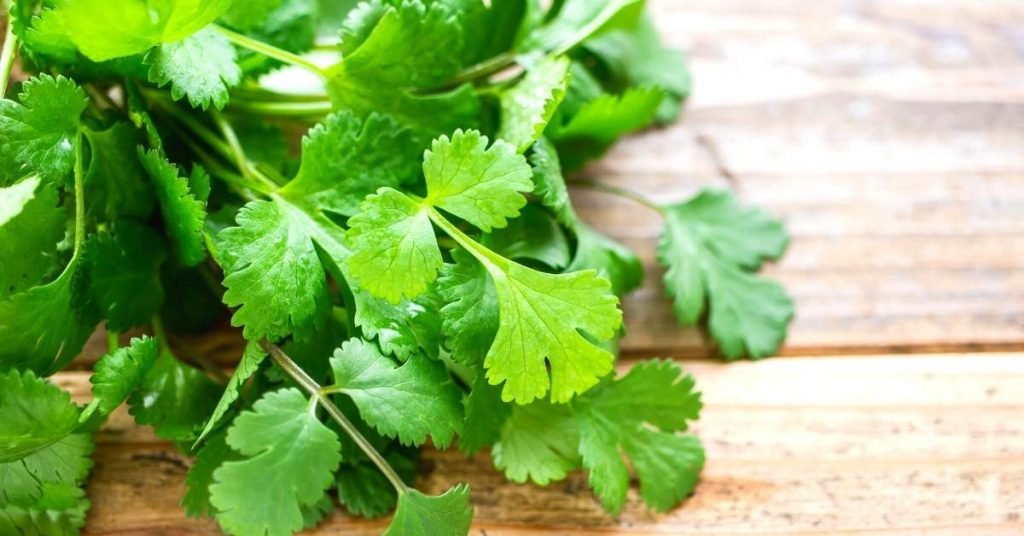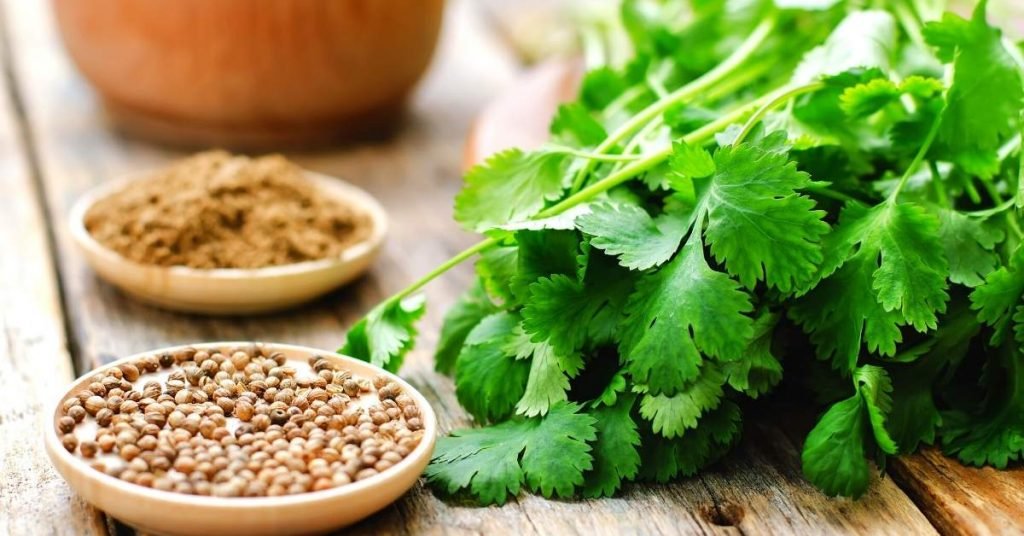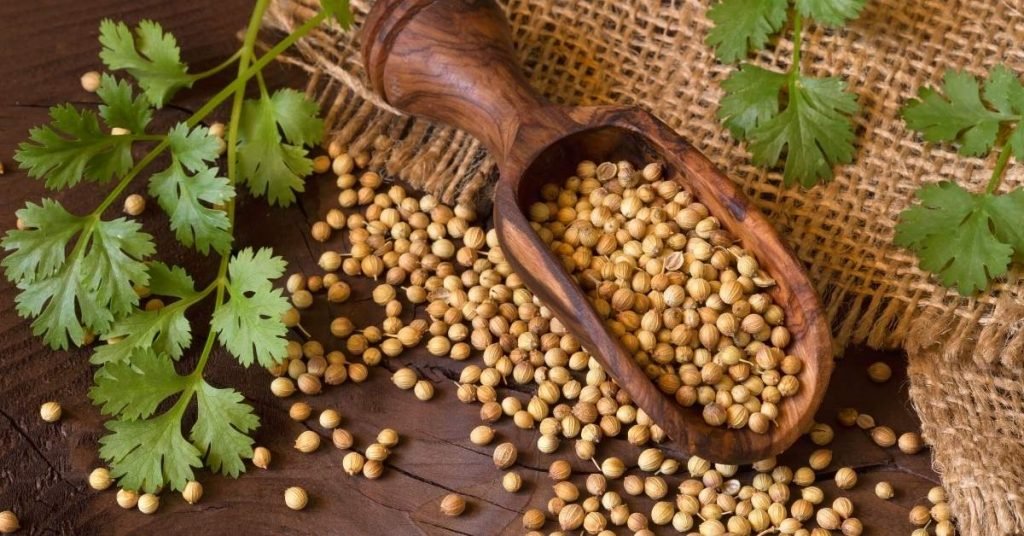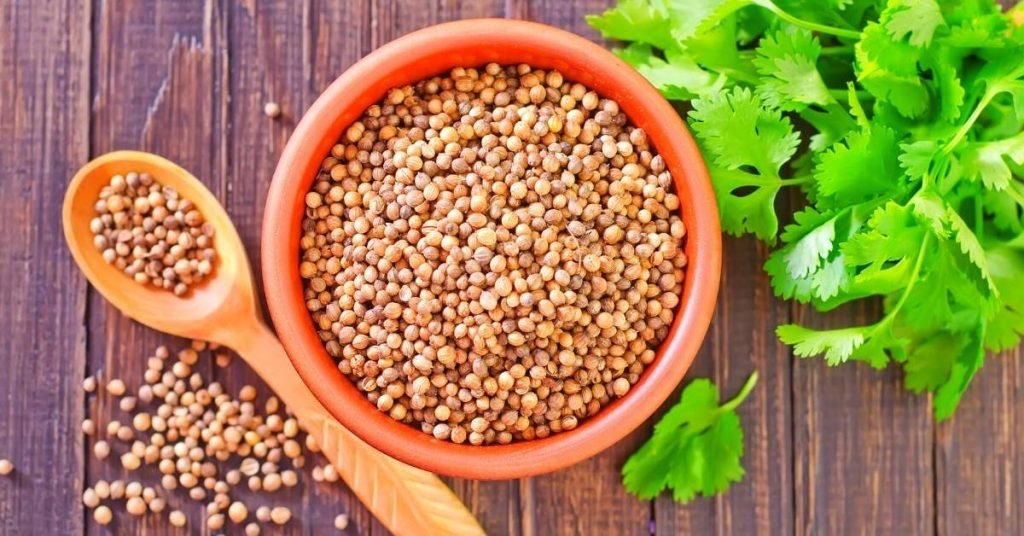Coriander is a herb used as a spice and has numerous beneficial properties for human health. Both its leaves and seeds are used and sometimes it is even confused with parsley, although they are two different herbs.
It is worth mentioning that this is one of the components of the well-known curry, which is widespread worldwide.

Although this herb is mostly used as a spice, it also makes a perfect source for herbal tea, packed with various medicinal properties that we will explore below.
Antispasmodic
Coriander tea stands out for its antispasmodic properties, that is, it helps to calm involuntary spasms of internal organs such as the stomach or intestines. Thus, you can resort to coriander in case of cramps or indigestion problems to relieve these movements and cramps.
Likewise, this herb is also useful to combat painful digestion, constipation, and digestive disorders in general. It also has carminative properties that will help reduce the accumulation of gases in the gastrointestinal tract and the consequent bloating that these generate. At the same time, it is stimulating so you can take it in case of loss of appetite to regain the desire to eat.

Anti-inflammatory
We should also mention the anti-inflammatory capacity it has due to its anti-rheumatic and anti-arthritic properties; and the ability to adhere to toxic metals and expel them through urine or perspiration, with the same method it can lower cholesterol.
Sedative
Coriander seeds are used in some places as a natural remedy to treat insomnia and anxiety, as coriander can act as a sedative and anxiolytic and that is why it is even used in the manufacture of some medicines. However, in case you are undergoing treatment with sleeping pills, we recommend that you consult your doctor first.

Expectorant
Another beneficial property of coriander is its expectorant power that can be used in case of respiratory diseases that cause the accumulation of mucus. That is why in case of a cold you can resort to coriander infusions to relieve discomfort.
Antibiotic and Antibacterial
Coriander tea also has antibiotic and antibacterial benefits, so it can be useful in the treatment of wounds. In fact, it has been found to be very effective in promoting the healing of mouth sores or ulcers due to its antiseptic, healing, and antimicrobial properties. Besides, it is also beneficial to chew a coriander leaf as a home remedy to combat halitosis or bad breath.
Packed With Vitamins
Coriander tea is a carrier of large amounts of vitamins A, K, B, B, C, and E, which are essential for the proper functioning of the body:
- Vitamin A: we all know its famous effects on sight because it intervenes in the processes of repair and growth of the cells that make up our vision, it also intervenes in the mucous membranes, hair, and teeth.
- Vitamin B: it is involved in the metabolization and synthesis of carbohydrates, helps in the generation of enzymes involved in obtaining energy through fats, collaborates in the correct functioning of the nervous system, and is involved in growth and development.
- Vitamin C: it works as fuel for our defenses.
- Vitamin E: it is linked to the production of sexual cells and red blood cells, although it is also an antioxidant, it prevents cholesterol from accumulating. Its rejuvenating and healing effect makes it an excellent ally for the skin.
- Vitamin K: it is basically linked to blood coagulation, without this vitamin the blood does not clot.

… and Minerals
On the other hand, coriander also provides minerals such as calcium, magnesium, iron, potassium, and phosphorus:
- Iron: helps fight iron deficiency anemia and its digestive properties make it highly recommended for hormonal changes in women (menstruation) and helps reduce menstrual cramps.
- Calcium: it is linked to the preservation of bones but also intervenes in the transmission of nerve impulses, muscle contraction, and blood coagulation.
- Potassium: helps the functioning of the heart, and kidneys and controls the water level in the body.
- Phosphorus: collaborates and helps in digestion and in the preservation of bones and teeth, although we all classify it for its effects on memory, it is not the only thing it can do for us.
No content on this site, regardless of date, should ever be used as a substitute for direct medical advice from your doctor or other qualified clinicians.
If you’re looking for a special and unique flavor, check out our extraordinary selection of teas at Hummingbird Tearoom. Add any medicinal herb to one of our organic teas elaborated for your enjoyment and health.
MEDICAL DISCLAIMER
Itsnevernotteatime.com cannot and does not contain medical/health advice. The medical/health information is provided for general and educational purposes only and is not a substitute for professional advice.




